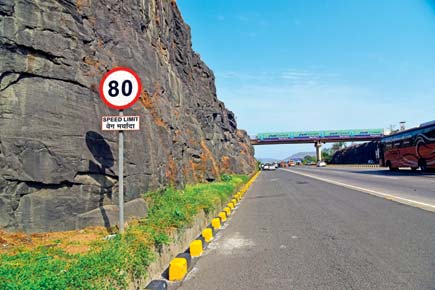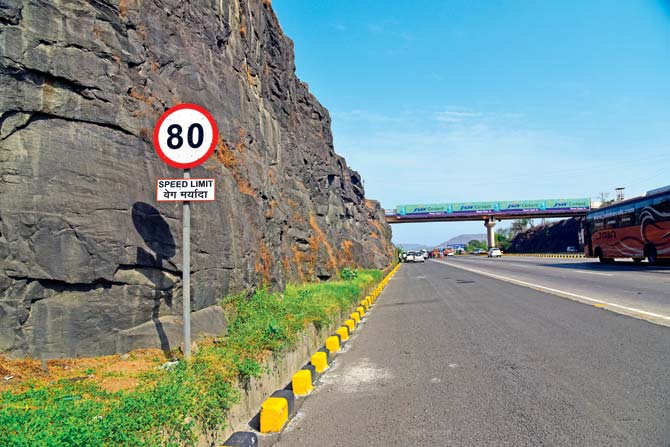We revel in our bad behaviour and terrible road sense, but all it does is make our roads more dangerous than they already are


Apparently, the Bombay-Pune Expressway alone, between 2002 and 2016, saw over 14,500 accidents
ADVERTISEMENT
 One of the saddest things I came across earlier this week was photographs of a funeral held for seven young men from Vile Parle, all of whom died in a road accident while driving from Bombay to Goa. The father of one of the victims told the press that the youth died while trying to save a person coming towards them on a bicycle. Whether or not that did happen is almost impossible to verify, as is usually the case in such scenarios, but it did make me nervous for a few days whenever I stepped behind the wheel of my car.
One of the saddest things I came across earlier this week was photographs of a funeral held for seven young men from Vile Parle, all of whom died in a road accident while driving from Bombay to Goa. The father of one of the victims told the press that the youth died while trying to save a person coming towards them on a bicycle. Whether or not that did happen is almost impossible to verify, as is usually the case in such scenarios, but it did make me nervous for a few days whenever I stepped behind the wheel of my car.
It’s something we all know and recognise, but refuse to do anything about simply because we don’t care — our inability to follow and our government’s inability to enforce road safety rules. To zip across crowded streets is a matter of pride for so many of us. To jump a signal or two in order to reach a restaurant one minute before everyone else is normal. To run across highways, often with children in tow, may be the stuff of nightmares in some countries, but is just another day in our lives. It’s as if we revel in bad behaviour, and I fail to understand what it gets us.
Our cab and rickshaw drivers feel the need to spit at every traffic signal, for reasons known only to themselves. They use the horn as if their lives depend upon it, pressing down relentlessly outside schools and hospitals, desperate to move an inch more than they can. It’s not just them either. Look around the next time you’re stuck in a jam and watch fellow Bombayites assault their horns, waiting for traffic to magically ease before them. It’s almost as if noise pollution is part of our culture.
In December 2012, two actors, Anand Abhyankar (50) and Akshay Pendse (30), along with the latter’s 2-year-old son, were killed after their car ran into another speeding vehicle on the Bombay-Pune Expressway. Pendse’s brother Tanmay was troubled enough to find out more about that controversial stretch of roadway. What he found ought to have featured on every political party’s manifesto, but doesn’t.
Apparently, the Bombay-Pune Expressway alone, between 2002 and 2016, saw over 14,500 accidents. Approximately 1,400 lives were reportedly lost on that 94-kilometre stretch.
Here’s another thing that ought to surprise us all, but doesn’t. There is no trauma centre on the Expressway. In the event of you getting into an accident, you have only the kindness of strangers to rely upon. The Highway Police do exist, of course, but when was the last time you saw them patrolling that stretch while you drove past? Think about how bad it gets the minute the rains set in. Think about signboards on either side that are often illegible, the threat of falling rocks that routinely disrupt traffic, the absence of emergency response booths or even a clean public toilet. These are things that any government on Earth would incorporate into a project of this size at the planning stage. And yet, 15 years after the Expressway was thrown open (at a cost of a reported R16 billion), these things continue to remain on paper, along with a million other promises made by a million politicians.
Interestingly, the government and a construction firm have pushed back against demands by activists to terminate toll collection on the Expressway. Activists say the firm has crossed the amount it has the mandate to collect. Naturally, the firm begs to differ. It’s hard to figure out what these massive tolls have been used for, considering the lack of basic amenities for commuters. It’s not hard to figure out why no political party feels the need to focus on safety here though: why bother when you’re not sure which vote bank the commuters from both cities are part of? Why worry about road safety when legalising illegal slums and renaming streets gets more political mileage?
Meanwhile, there are talks of something called the Nagpur-Bombay Super Communications Expressway. To be built by that stellar organisation, the Maharashtra State Road Development Corporation (MSRDC), by 2019, it will supposedly require motorists to pay toll for 40 years in order to be financially viable. What will that toll get you, you ask? Safety? Efficiency? Better policing? Emergency services? Going by the history of how things work in the state of Maharashtra, I'd say you should be happy with a pothole-free stretch, if nothing else. And that’s not guaranteed either.
When he isn’t ranting about all things Mumbai, Lindsay Pereira can be almost sweet. He tweets @lindsaypereira. Send your feedback to mailbag@mid-day.com
 Subscribe today by clicking the link and stay updated with the latest news!" Click here!
Subscribe today by clicking the link and stay updated with the latest news!" Click here!






